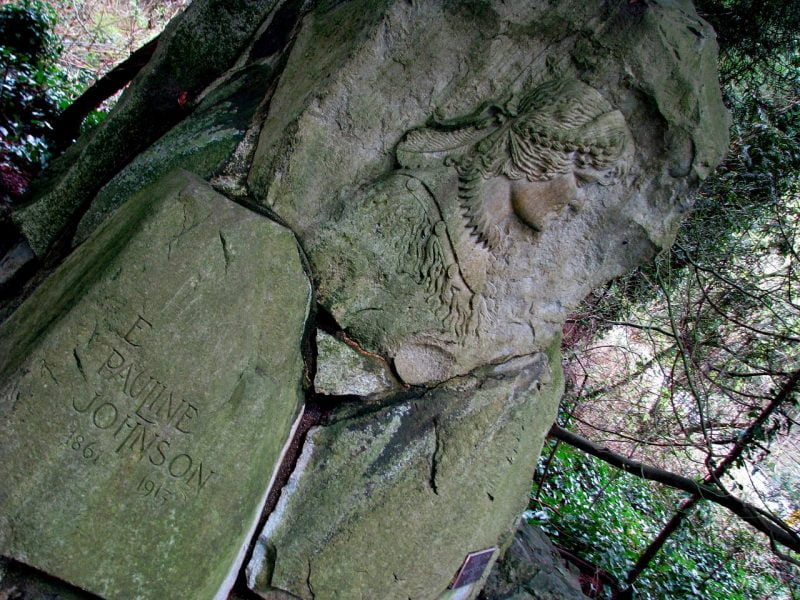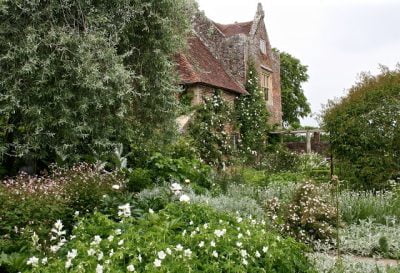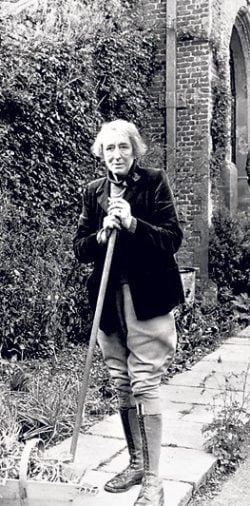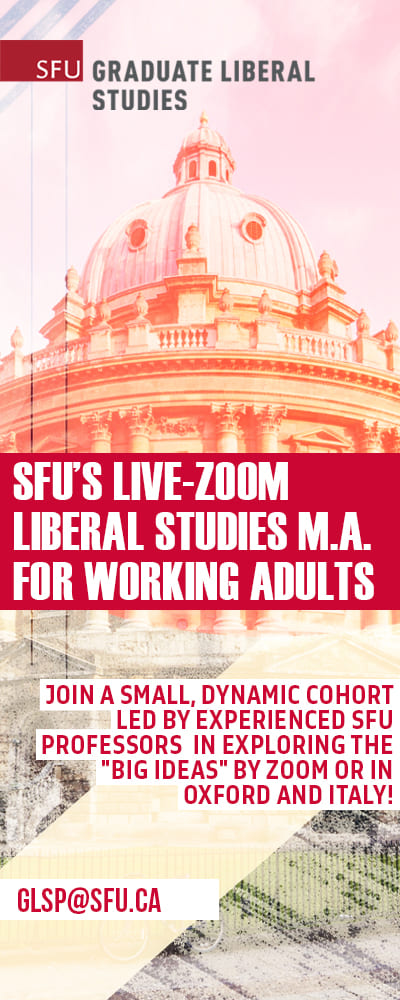#838 Finding hope in Lost Lagoon
Lost Lagoon / lost in thought: prose poems
by Betsy Warland
Halfmoon Bay: Caitlin Press, 2020
$20.00 / 9781773860251
Reviewed by Adrienne Drobnies
*
 As I write this now into a third month of being at home during the Covid-19 pandemic, I think what could be more agreeable than to go for a stroll around a lake with a knowledgeable, interesting, and kindly companion — perhaps still at a cautious distance but with a feeling of the physical closeness we could have before our world suddenly shifted. Reading Lost Lagoon/ lost in thought by Betsy Warland feels like what that walk would be like if one could take it now — or take it again one day.
As I write this now into a third month of being at home during the Covid-19 pandemic, I think what could be more agreeable than to go for a stroll around a lake with a knowledgeable, interesting, and kindly companion — perhaps still at a cautious distance but with a feeling of the physical closeness we could have before our world suddenly shifted. Reading Lost Lagoon/ lost in thought by Betsy Warland feels like what that walk would be like if one could take it now — or take it again one day.
This is Betsy’s 13th book and her command of art and of language is that of a virtuoso. There is a sureness that informs her craft and sense of deft touch when one feels but does not overtly notice the skill required to make the work of art. These are a few of the reasons this book was immediately a bestseller in BC on its release. We are all thirsting for beauty and poetry and fresh air right now. We hunger for the freedom to walk outdoors without hypervigilance. The book is also a vivid reminder of the care and caution with which we need to act in relation to that world outside our door.
The book is structured in 55 short texts titled only by their first lines, and preceded by an introductory text, “The Notebook.” The book ends with “Bluestem & Bull Kelp: A Postscript,” which has three sections.
In the introductory poem, “The Notebook,” Warland invites us:
To be without belief
Curious
as the harbour seal surfacing in front of you
We are gently drawn into this ocean-delimited setting that the writer inhabits — invited to come to it with open mind and open heart.

We are introduced to The Human in #1 (“The Human is at a loss for words”) and the argument Warland has with herself about the use of this term to describe herself. This is also a book about aging and letting go of the self. Warland is “weary of North Americans’ obsessive use of ‘I’…” and “Increasingly … longs to live like other-than-human beings.” We come to understand and accept the relief the writer and we feel in loss of individual identity — of being only “The Human,” another creature among many who inhabit Lost Lagoon and its surroundings.
The narrative notes what odd creatures we are in having compelled other creatures into being our entertainment and self-parody. In #3, “Everyone Loves Marine Land,” The Human and Son mimic. The conclusion is that “Disregard, wariness, and retreat prevail when we are near.” We recognize that we cannot exist in isolation (nothing reminds us of that more forcefully than our present moment), but we struggle with our self-destructive urges to dominate and overcome. This, Warland recognizes, is the human condition: the wound not just of consciousness but our peculiar version of self-consciousness.
There are many tender moments in the book, such as when The Human confers with crows simply as one living being in relation to another. There is a sweet freedom tasted here without a trace of the sentimentality that a less artful writer might interject into the moment. The book demonstrates remarkable integrity and honesty on each page.

Early on in the narrative we learn that The Lagoon is not a lagoon at all, and that is why it is lost. It is in fact now a lake that was formed by cutting off the connection of the lagoon to the sea. The loss of the lagoon is one thread interwoven through the book with other kinds of loss. The reader finds grief in its many guises everywhere in Lost Lagoon/ lost in thought: loss of companions, animal, plant, and human; loss of habitat/place/environment; loss of culture; loss of language; loss of memory; loss of future possibility.
We learn, too, that it was Pauline Johnson who named the place, and we learn much more that is fascinating and enriching about both the lagoon and Johnson, one of the three figures to whom the book is dedicated, and who is a presence running through the book. In Johnson’s story and that of the Indigenous people of the land, we are forcefully reminded (#8) that:
Lost, another word for/
taken.

The other two people Warland dedicated the book to are Jean, The Beaver Lady, and Fiona, The Swan Lady. Some of the pleasures of Lost Lagoon/ lost in thought are found in the sudden turns of joy in The Human’s encounters with animals and those she observes through these people. The two women appear to be individuals whose own losses in the human world have brought them to a special understanding with the creatures they attend to. Approaching them, The Human requires the same gentle and cautious approach she takes with the animals she meets. We learn much about habits — both animal and human — through these observations.
But what is again most notable about these women is the experience of loss. In #20, we read:
Lost.
The Swan Lady seems lost.
It’s as if she’s just awakened from a bad dream.

Warland struggles with the thorny concept of “the natural world” and our sense of separateness from it. She notes how rapidly in the past century we lost our connection to the land — converting mostly from farmers to modern urban dwellers. The upheaval and devastation this has wrought are real, but Lost Lagoon/ lost in thought is not so much about going “back to the land” as forging a new relationship with our surroundings that is thoughtful, compassionate, and authentic. This is a book that challenges us to think about how to do that in our current circumstances, and to believe in its possibility. We can do it from occupancy of a small West End apartment in Vancouver, or anywhere else we find ourselves, if we are open to it.
First, however, we have to acknowledge that death is not an abstraction — that its place is everywhere in life along with birth and regeneration. In #22, The Human confronts this in the duel to the death among crows, and how it compares to human warfare:
The crows did not draw countless others into their fight, did not force captured children to be used as suicide bombers.
We are challenged to ask how is our evolutionary nature to be understood in this light.
In #9, the writer says about a realization from childhood that:
Humans’ duplicity was not only troubling — their lack of awareness about it made them dangerous. The Child watched. Considered. Saw the harm inflicted upon one another was considerable, but the harm inflicted upon nature was ruthless.
If nature is “red in tooth and claw,” how much more bloody in technology are we humans.
 In this memory, we also find an astute observation about resilience: how many hurt children have found solace and refuge in the world away from the human, and how much of human wellbeing depends on the security of that refuge? How much of that world has been damaged or has disappeared in our own lifetimes in a rush of extinctions? In this regard, Warland reflects on earlier thinkers who went into retreat — on Thoreau, for example, and the absence of peace now in the place he once inhabited. Lost Lagoon/ lost in thought does not turn away either from the inevitability or the relentlessness of change. It asks the reader only to consider again what relationship to enter into with that flux — one that navigates it with grace, or one that struggles and impedes and destroys.
In this memory, we also find an astute observation about resilience: how many hurt children have found solace and refuge in the world away from the human, and how much of human wellbeing depends on the security of that refuge? How much of that world has been damaged or has disappeared in our own lifetimes in a rush of extinctions? In this regard, Warland reflects on earlier thinkers who went into retreat — on Thoreau, for example, and the absence of peace now in the place he once inhabited. Lost Lagoon/ lost in thought does not turn away either from the inevitability or the relentlessness of change. It asks the reader only to consider again what relationship to enter into with that flux — one that navigates it with grace, or one that struggles and impedes and destroys.
In #12, Warland writes,
Then The Human considers how the proportions of humans to all other life feels more easeful and balanced in the depth of the night or on major holidays when the city empties out.
Or in a pandemic perhaps, we now think, when we notice the other animals in our surroundings moving within the space more freely. Meanwhile, we retreat and consider our small place in the universe and our deep vulnerability. We notice how we routinely make so much effort to avoid confronting these realities.

In the same section, the writer gives us a beautiful image of Vita Sackville-West’s night garden of white foliage meant to be illuminated by the moon. We are invited into the peace and magic of this careful cultivation. We are given access to a sensory delight found in moments when we can manage to release our fear and anxiety.
Just before the post-script poem, an interesting typography sets the words Lost Lagoon with only the “O’s” in dark print – the other characters fading out as if about to be lost. Language itself takes a step back. What persists is the wholeness of the physical embodied presence.

The post-script poem queries the precise definition of words. Here Warland makes the most direct political comment and a plea for compassion: “In the absence of abiding tenderness, research and policy change will inevitably be inadequate….” She reflects on the power of hearing and sound — “in utero, hearing is our first sense to develop, and in death, our last to leave us” — to represent our basic need for tenderness in a world where cities can run out of water because of the climate change that we ourselves have created. Urgently, Warland demands that “we must rapidly and radically change ourselves,” not by thoughtlessly engineering our environment, but by aligning ourselves with it if we are to survive.
In #28, “The Human wonders, ‘Are we out of the woods?’ Hesitates. Feels the seductive pull of this quick-fix thinking but knows, ‘No, we are in the woods — more dependent than ever on one another.’” Could there be in this historical moment a more acute observation on our human lives and experience?
Like any good book, Lost Lagoon/ lost in thought causes us to ask questions of ourselves. I found myself contemplating this question: “Was there a time when the animals wondered with a small sigh of relief, but, also knowing what the world is, with some sadness, ‘Where is The Human?'”
*

Adrienne Drobnies’ first book of poetry, Salt and Ashes, was released in 2019 by Signature Editions (see the review by John Swanson in The Ormsby Review no. 665, November 23, 2019 – ed.). A graduate of the SFU Writer’s Studio, her poetry has appeared in The Antigonish Review, Event, Riddle Fence, Cider Press Review, and other literary magazines in Canada, the US, and UK. She has a doctorate in chemistry from the University of California at Berkeley. Her long poem “Randonnées” won the 2017 Gwendolyn MacEwen Award for Best Suite of Poems by an Emerging Poet and was a finalist for the CBC literary award for poetry.
*
The Ormsby Review. More Books. More Reviews. More Often.
Publisher and Editor: Richard Mackie
The Ormsby Review is a journal service for in-depth coverage of B.C. books and authors. The Advisory Board consists of Jean Barman, Robin Fisher, Cole Harris, Wade Davis, Hugh Johnston, Patricia Roy, David Stouck, and Graeme Wynn. Scholarly Patron: SFU Graduate Liberal Studies. Honorary Patron: Yosef Wosk. Provincial Government Patron since September 2018: Creative BC
“Only connect.” – E.M. Forster






























